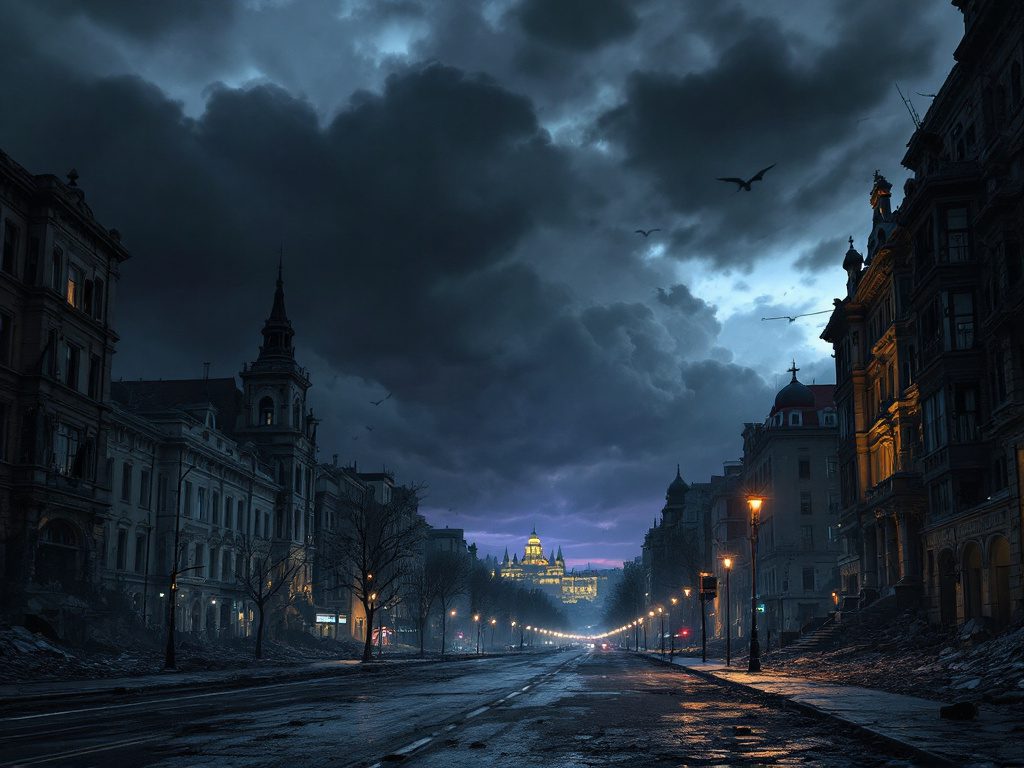The Return Home: Zelenskyy’s Urgent Decision Amid Crisis
Shortly after Ukrainian President Volodymyr Zelenskyy stepped off a plane in South Africa, news broke of another grim milestone in Russia’s invasion—a devastating missile barrage on Kyiv. The attack, which left at least nine dead and scores wounded, was so severe that Zelenskyy canceled much of his planned diplomatic outreach, racing home to rejoin a nation under siege. For Ukrainians, this sudden homecoming embodies both the unpredictability of war and a president forced to navigate international advocacy and personal leadership—often, on a moment’s notice.
Ukraine’s capital has endured assaults before, but the latest strike stands out for its sheer intensity. According to Ukrainian officials, approximately 70 missiles—including powerful ballistic types—and some 150 Iranian-made strike drones rained down overnight. While air defense crews, recently empowered with Western-supplied F-16s and Mirage jets, managed to down 48 missiles and 64 drones, their efforts could not prevent widespread devastation. Kyiv awoke not only to shattered glass and buckled apartment blocks, but also to renewed anxiety as air raid sirens echoed through the morning traffic.
Beyond the haunting statistics of the dead and injured, extraordinary stories of survival have emerged. Pavlo Petrov, spokesperson for Kyiv’s State Emergency Service, described a dramatic scene: a young man, scarcely 30, trapped for over six hours beneath a collapsed building. Alert and responsive to rescuers’ calls, his survival offered a rare glimmer of hope—though it arrived against a backdrop of ongoing sorrow across the capital.
Diplomacy Interrupted: Crimea, Peace, and International Stakes
As rescue crews labored over twisted steel and crumbling masonry, the wider stakes of Ukraine’s fight came into sharp relief. Zelenskyy, already at the midpoint of a critical diplomatic mission, had been in South Africa pressing for greater global solidarity against Russian aggression. The attack, however, forced a reshuffle in Kyiv’s diplomatic strategy. Ukrainian Foreign Minister Andriy Sybiha will carry forward talks in South Africa, but the absence of Zelenskyy, Ukraine’s most visible advocate, carries diplomatic costs.
The urgency is palpable—and not just because of the violence. Zelenskyy’s cancelled appearances follow 44 days of attempted ceasefires, as Ukraine has struggled to maintain even a temporary lull in fighting. In words broadcast around the globe, Zelenskyy has repeated his plea: more support for air defense, immediate assistance to end missile attacks, and targeted help to return Ukrainian prisoners and children abducted by Russian forces. These kidnappings, which international monitors such as Amnesty International have roundly condemned, represent another front in a war marked not just by rockets, but by wrenching human loss.
“Every moment the world hesitates, more Ukrainian lives hang in the balance. We need action, not just sympathy.”
International response to this cycle of violence remains uneven—sometimes stalwart, other times dithering. While European allies have steadily delivered air defense systems (with Germany and the Netherlands recently pledging more Patriot batteries), other partners, including nations in the Global South, have watched cautiously. South Africa’s President Cyril Ramaphosa, who met briefly with Zelenskyy, now faces heightened diplomatic pressure to clarify his country’s stance. South Africa’s government, which maintains complex historical ties to Russia, has so far avoided forthright condemnation—a position progressives argue is at odds with South Africa’s own legacy of resistance against oppression.
Meanwhile, U.S. politics cast a long shadow. Former President Donald Trump, in a much-publicized remark this week, criticized Zelenskyy’s position on Crimea, injecting yet more uncertainty into an already fraught peace process. As Harvard historian Serhii Plokhy notes, political division in Washington threatens to “embolden Moscow and undermine the democratic world’s resolve.” This commentary isn’t abstract: support for Ukraine’s defense, vital in intercepting missiles like those that struck Kyiv, remains a live debate on Capitol Hill.
Shrapnel and Shadows: The Human and Political Cost of Relentless War
The immediate aftermath of the missile strike reads as both heartbreak and grim routine. Emergency services work around the clock to clear rubble and attend to the injured; volunteers and medics—overstretched but undeterred—rush to the scenes of devastation. For Kyiv residents, life pauses and resumes in bursts, disrupted by fresh alarms and the very real prospect that tragedy will return before the dust settles. Weekly images of children’s backpacks and shattered playgrounds underlie why global concern hasn’t, and mustn’t, abate.
President Zelenskyy’s vocal appeals for help extend beyond the military. Russia’s systematic abduction of Ukrainian children has prompted outrage among humanitarian organizations and the United Nations, marking a creeping escalation that recalls the darkest chapters of 20th-century Europe. “These crimes are not collateral—they are deliberate,” University College London’s Professor Tamila Tasheva told BBC World last week. Calls for the International Criminal Court to investigate have grown louder, even as Moscow flouts international norms.
The liberal West faces a choice—one that tests not only its diplomatic backbone, but its moral center. When missile fire persists despite ceasefire agreements, and when political opportunists turn tragedy into talking points, democratic societies are challenged to define themselves by the principles they claim to defend: liberty, collective security, and the sanctity of civilian life. As everyday Ukrainians endure what has become a war of attrition, their resilience demands more than admiration from the global public. It demands substantive solidarity and a refusal to let this crisis drift into the background noise of geopolitics.
From the battered streets of Kyiv to diplomatic rooms in Pretoria, the struggle is the same: ensuring that democracy’s voice isn’t drowned out by indifference or fatigue. For Americans, the stakes are real. Supporting Ukraine isn’t merely about arms or aid. It’s about whether you believe—deep down—that borders should not be redrawn by force, and that human lives are worth more than cynical power plays. The world will, inevitably, be shaped by how we answer that question now.

